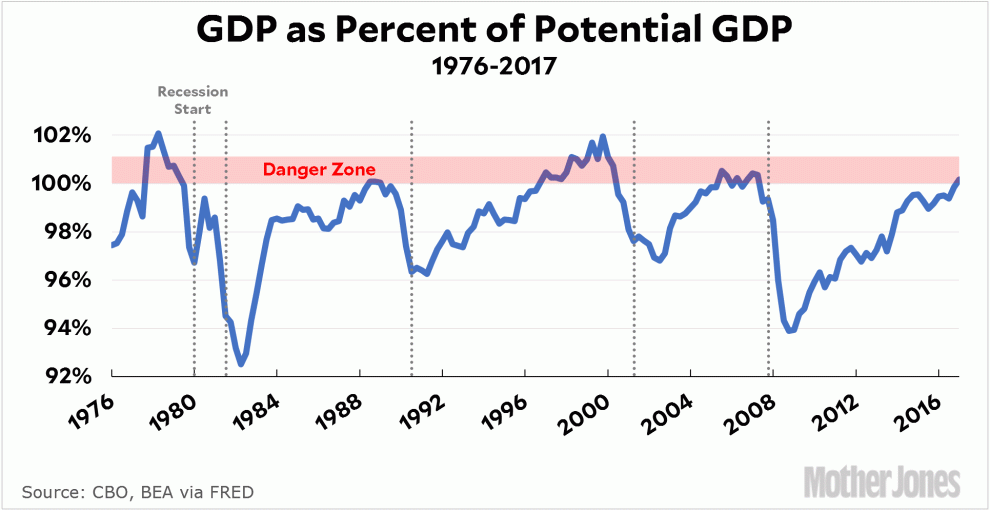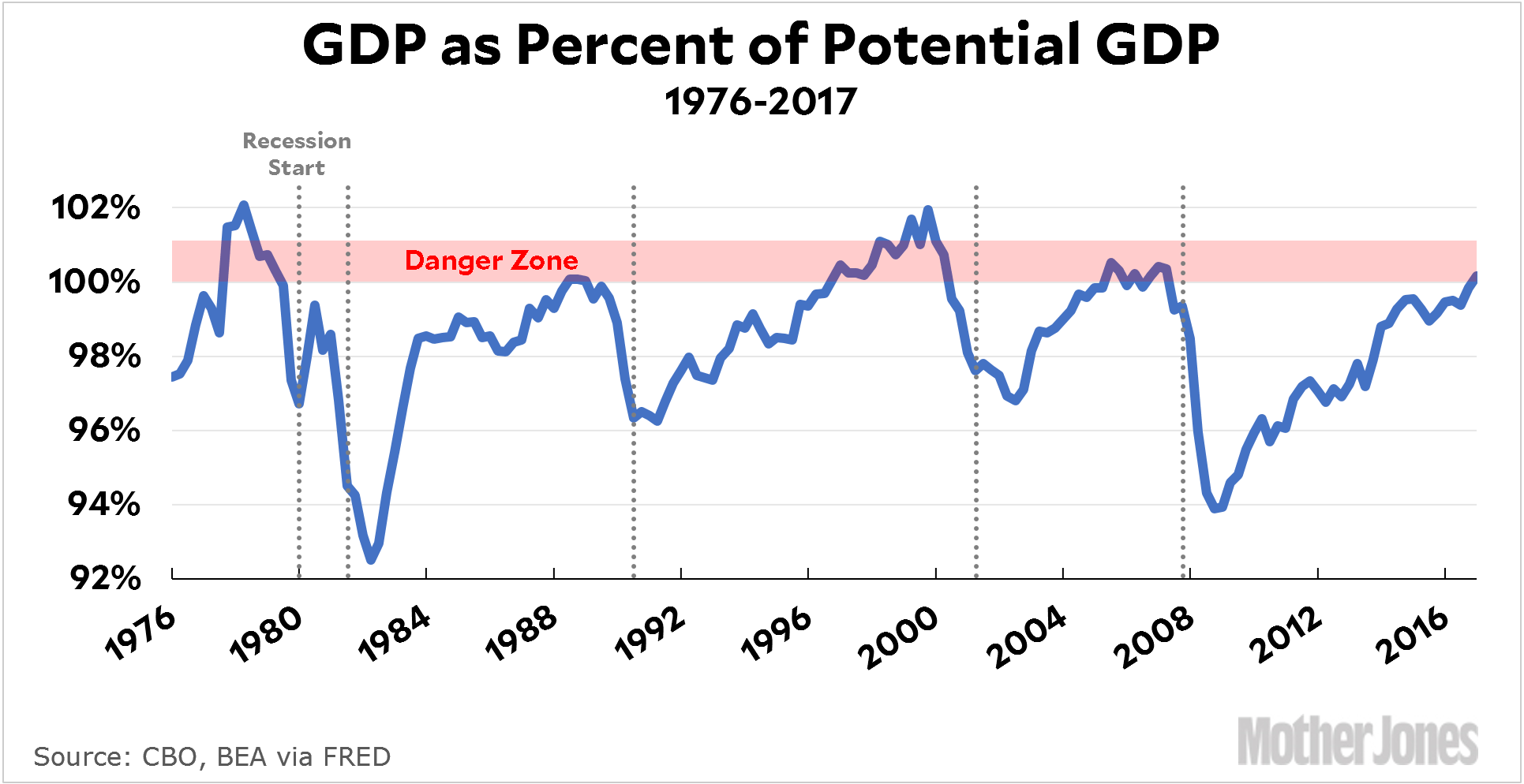
I don’t want to turn into a total Cassandra about the economy, but the Wall Street Journal isn’t providing me any comfort:
December 13: Everyone is giddy. “Forecasters are increasingly optimistic the U.S. economic expansion could continue beyond the 2020 presidential election….Most of the private-sector economic forecasters surveyed in recent days by The Wall Street Journal said the odds of a new recession by late 2020 were below 50%. The average probability of a recession in the next year was 14%.”
January 4: Even the bears are giving up. “Jeremy Grantham, a skeptic of the U.S. stock rally, said this week that investors ought to brace for explosive short-term stock gains….He is the latest high-profile investor and market strategist to change their stance in recent days, as some of Wall Street’s most closely-followed seers have tried to come to grips with the continued rise in stock prices.”
January 8: Hedging is for wimps. “After a long stretch of stock market tranquility, more investors are concluding that paying for hedges to protect against any sudden downturn is a waste of money….‘I haven’t seen hedging activity this light since the end of the financial crisis,’ said Peter Cecchini, the New York-based chief market strategist at Cantor Fitzgerald.”
January 8: Borrowing is all the rage again. “U.S. consumer borrowing posted the largest monthly gain in 16 years, buoyed by increased consumer confidence in the economy. Outstanding consumer credit rose by $27.95 billion in November from the prior month, the biggest increase since November 2001, according to new data from the Federal Reserve.”
These are the kinds of behaviors that become common just when things are about to turn around. The key problem, of course, is defining “about to.” When GDP starts bumping up against potential GDP—which is happening now—that’s an obvious danger sign. But that can mean a recession is anywhere from a few months to three years away:

You pay your money and you take your chances. I’m less giddy than most, but I don’t know anything more about this stuff than you do.















